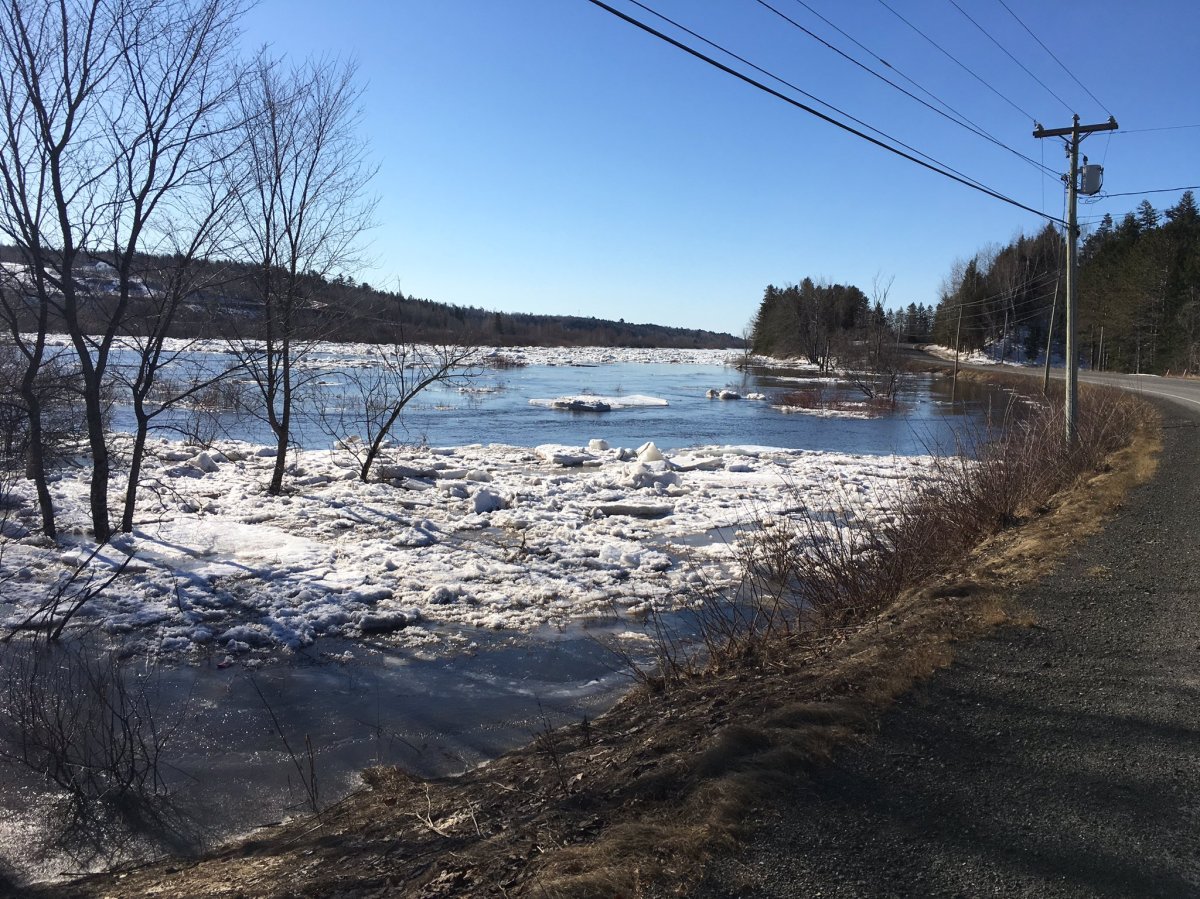Emergency Measures officials say they’re pleased by the gradual rate of river ice melting in the St. John River, one year after last year’s record-breaking floods wreaked damage on New Brunswick.

Geoffrey Downey, spokesperson for the province’s Public Safety Department, says that while rains are coming this week, the river melting has been steady and slow, a pattern radically unlike the 2018 rush of water.
There were initially some concerns as the past winter brought a heavy accumulation of snow in the province’s north.

Get daily National news
However, Downey says the gradual shift of temperatures, with above freezing levels in the day and cool nights, differs from last year’s quick flip from cold to very warm temperatures.
Last year, about 12,000 properties were affected by widespread flooding between late April and mid-May.
WATCH: EMO warns of flooding ahead of spring freshet (April 12, 2019)

Downey says all communities along the river are forecast to remain above the river waters for the next three days.
He cautions that if temperatures were to radically change next week, the risks of flooding could quickly rise.







Comments